A Review of Eglantina Mandia’s Book, “Sonata e Hënës” (The Moon Sonata)
Memorie.al / Musine Kokalari are the most interesting and most tragic figure among the writers of the 1930s. Most interesting because, although she lived in a period not very favorable for the development of the Albanian intellectual woman, she managed to gain, thanks to her talent and culture, the admiration of many well-wishers and distinguished scholars of Albanian culture and the nation, such as the Albanologist Maximilian Lambertz, who wrote: “With the gift of a versatile talent like Kokalari’s (referring to her work), a picturesque tableau is given in a marvelous, vivid language.” While Talavini, after evaluating the style and language of her work, concludes: “I can tell you that you have been known for a long time as a completely unique voice.”
This is how Musine was valued by other personalities, both inside and outside the country. Her figure became even more tragic because she had to endure unbearable pain, unimaginable tortures, isolation, and murderous loneliness, yet she rose above them stoically and became a symbol of purity, honesty, and the moral strength of the Albanian woman.
Musine’s life was very short, if one counts the few moments of happiness she experienced, and very long, if one remembers the anxieties, sufferings, and hardships she endured until the end of her life. Precisely for these reasons, the writer Eglantina Mandia, known to the public for her novels, short stories, and publicism, in which she warmly created interesting portraits of women participants in the movement for freedom and independence (1878-1939), continued this successful work by writing the fictionalized biography of Musine Kokalari, titled “Sonata e Hënës.”
As a writer, Eglantina Mandia is drawn to the person, the brilliant personality of the young writer, who persistently sought the truth of life to make it the artistic essence of her work. She is interested in the artistic talent of the twenty-year-old, who, right from her first published sketches, clearly reveals her creative intuition, spontaneity, and love for humanity, especially for the Albanian woman.
“MUZA” (the Muse), Kokalari’s pseudonym, reveals in her first writings the ideas of her future works, the ideals of a writer who strives towards the openness and emancipation of the future Albanian society…! And precisely now, she comes among us with this publication by Eglantina Mandia, as a realized promise, as a much-awaited gift – that noble woman who never stopped dreaming and hoping for her people throughout her life.
The life of Musine Kokalari, this distinguished intellectual and martyr, provides opportunities to address interesting works, but it required persistence in discovering and processing the documentation, sympathy and interest in this figure, and the talent of Eglantina Mandia, as a tireless researcher, and her passion, for the writer to give us a work that is both dignified and inspired.
Here are some of her merits in brief:
Eglantina Mandia managed to gather rich factual material, which consists of Musine’s published literary legacy, the manuscripts preserved in the Central State Archives, the testimonies of her contemporaries and collaborators, and the appreciative publications in the press of the time, such as Lasgush Poradeci, Sotir Kolea, etc.
The author carefully selected and filtered this factual material and, through it, created the social and political atmosphere that prevailed in Albania during the difficult days the nation was undergoing, on the eve of World War II and the first years of the establishment of the totalitarian regime of the dictator Enver Hoxha.
“The whole people were living through difficult days, but as the saying goes, we knew what we had experienced in the whirlwind of the war that engulfed the whole world, but we did not know what fate awaited us in the future.”
How meaningful is the authentic document, the letter written by Mumtaz Kokalari, Musine’s brother, on the eve of the liberation of Tirana, where he, like a visionary, predicts and fears the evil that is coming to Albania; “from the field of Gjirokastër,” Enver Hoxha.
“The misfortune of our nation and poor Albania,” he writes, “is that it has fallen into the hands of a monstrous, insidious, vengeful, spiteful, cunning, megalomaniac, selfish person who wants people under his thumb, a gambler, a liar, and when he was abroad for studies, he failed every exam, lingered in cabarets, casinos, etc., and defiled the world with debts. We Gjirokastrian intellectuals know everything about him and how much his skin is worth that is why he seeks to annihilate us!” (Excerpted from the newspaper “Luftëtari i Lirisë,” November 27, 1994).
This prediction was confirmed. Without mercy, his childhood friends, his youth friends, his study friends, those who knew his intimate life – the two Kokalari brothers, Dr. Enver Sazani, Eng. Sulo Klosi, Sabiha Kasimati, and many others – were struck, killed, and imprisoned.
And Musine paid the toll of the unyielding intellectuals. Otherwise, one cannot understand that black, cynical, inhumane vengeance, that 40-year persecution. Imprisonment, internment, isolation, complete surveillance, just so she would not write, so her mind would go numb, so her life would waste away in complete loneliness.
Equally authentic is the other document, a page from Musine Kokalari’s correspondence with the oncology hospital directorate, three letters written during the period October-December 1981, where Musine asks only this: that the date scheduled by the medical commission for her operation be implemented. That she be allowed to be admitted to the hospital in the afternoon, because she has nowhere to stay in Tirana and cannot afford the hotel expenses. Letters that remained unanswered.
…And the writer Eglantina Mandia, with only these three letters, with the truth they radiate about the lack of interest shown towards Musine by the “free medicine” of the communist regime of that time, brings the tragic end of this martyr without comment in the epilogue.
These and other testimonies serve the author to fully present the figure of Musine as a complete intellectual, a fearless patriot, an idealist, a visionary, a passionate collector of folklore, and a talented writer, a worthy representative of the new Albanian woman who was participating, albeit quietly, in the cultural and social life of Albania in the 1930s.
Relying on the narratives of her female friends and fellow sufferers and on Musine’s own intimate diary of the most shocking moments of her life, the writer Mandia skillfully reveals Musine’s rich spiritual world: the childlike sincerity, the feminine tenderness, the pride, and the strength of character, qualities that enabled her to withstand all the storms of life. It is Mandia’s merit that she revealed very essential aspects of her character.
Although a seemingly very fragile woman, she faced all the calamities that befell her with an admirable strength of character, preserving her soul untarnished, without making any compromise on the chosen path. The author skillfully weaves the authentic material with fiction. This work is a fictionalized biography.
Mandia narrates a life lived with many dreams, much love (above all for the homeland and the people), many worries, and much suffering, staying true to historical truth, but enriching it with her tactful interventions, without distorting this truth.
Those who knew Musine find her, after reading this book, as she was; those who did not know her find her as they would have liked her to be. In “Sonata e Hënës,” a varied style catches the eye, which the author has adapted depending on the moments of Musine’s life.
From the inspired lyricism, full of light from the years of childhood, it transitions to the subtle analysis of the heroine’s doubtful and anxious searches, in her attempts to find the truths and in the university years; further, to a concise, laconic, and sharp style, where the document speaks more about those decisive moments when she establishes her political position among those who think and fight for a free and democratic Albania.
And finally, an unfortunate woman who fought in vain against the turmoil of life, in the tragic epilogue of the work. For such tragic and human figures as Musine Kokalari, it is an honor and a duty to write. Eglantina Mandia has the merit of having fulfilled this pledge of honor with inspiration and love. Memorie.al




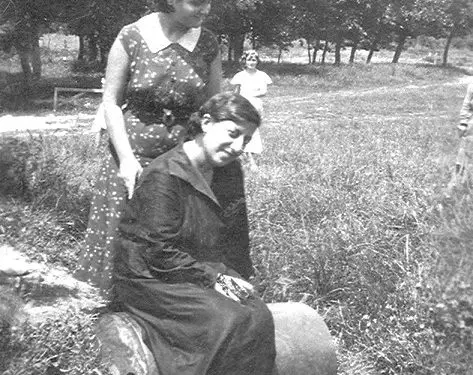
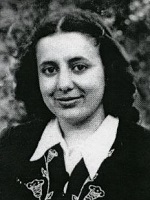
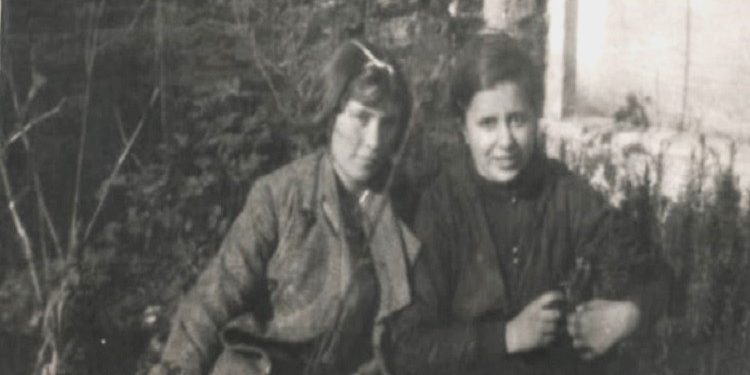
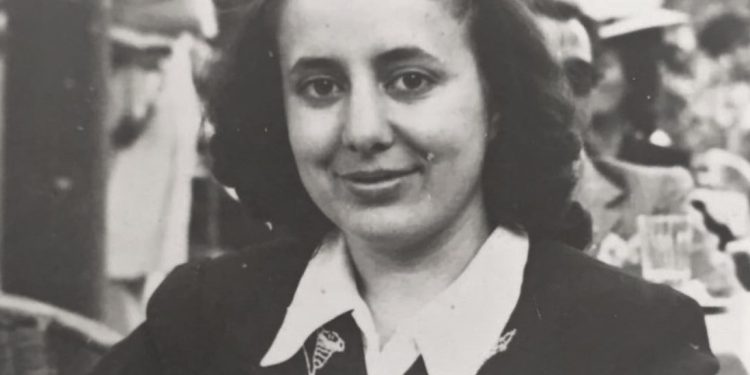
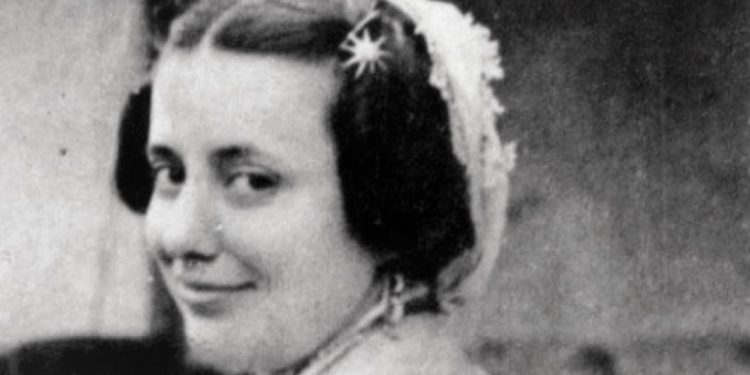


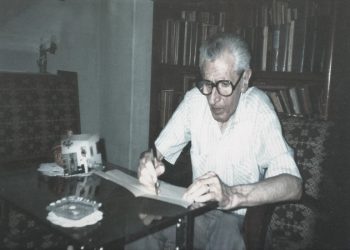
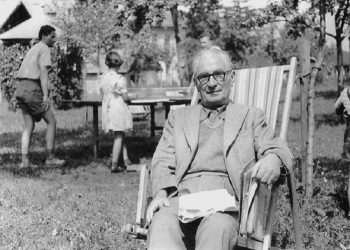

![“Count Durazzo and Mozart discussed this piece, as a few years prior he had attempted to stage it in the Theaters of Vienna; he even [discussed it] with Rousseau…” / The unknown history of the famous Durazzo family.](https://memorie.al/wp-content/uploads/2026/02/collagemozart_Durazzo-2-350x250.jpg)
